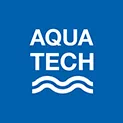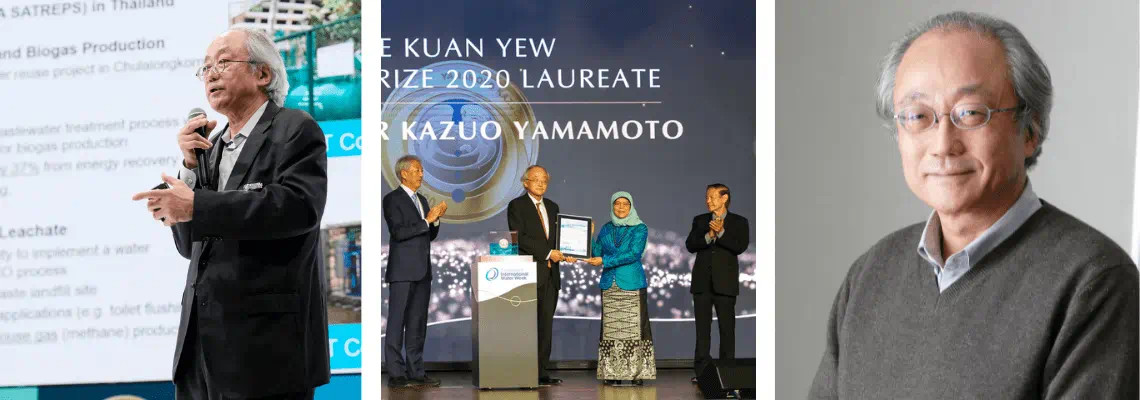A decision by Professor Kazuo Yamamoto not to patent his MBR innovation meant the technology has been widely adopted. Tom Freyberg met him to find out more.
Opening the doors for MBR adoption
In today’s world where identity and idea theft are commonplace, patent protection is seen as critical when scaling innovations.
Intellectual property (IP) protection, whether it’s a brand, solution, or name is often seen by entrepreneurs as the bedrock of their development. A necessary bureaucracy to safeguard their pride and joy.
Yet, it wasn’t always such litigious world plagued by potential lawsuits. And one innovator, whose very decision not to patent his invention, has meant the water solution technology has been widely adopted.
Rewind back to 1984 and it was in a small laboratory when Professor Kazuo Yamamoto proposed his idea for a submerged membrane bioreactor (MBR) technology.
Like many innovators, he went on to prove the sceptics wrong, building and proving a prototype. Over 30 years later, MBR is offered by several major players as part of their water treatment technology toolkits, treating the water from millions of people around the world. By 2028, the MBR market alone set to be worth $6.2 billion.
Winning the Lew Kuan Yew Water Prize
As expected from an individual who is renowned for being humble, graceful and a gentlemen, there isn’t an ounce of regret from Professor Yamamoto when talking about the decision.
“I didn’t care!” he laughs, reflecting on the decision with good humour. “I was interested in the technological development, rather than the intellectual property. Also, our generation was very lucky. The university didn’t put pressure on any university professors and researchers to protect the IP. That’s why I didn’t. It was a different world.”
Speaking to Aquatech Online at the Singapore International Water Week, he said: “The present situation is very different. Looking back, it was still the right decision as it has meant many industries have been involved and benefitted from the innovation. It’s enabled a variety of MBR technology to be developed.”
The Professor was in Singapore to collect the prestigious Lee Kuan Yew Water Prize, which recognises outstanding individuals or organisations towards solving the world’s water challenges.
He follows in the footsteps of Professor Rita Cowell from the University of Maryland, Mike Markus, the general manager of the Orange County Water District and also the Netherlands’ Professor Mark Van Loosdrecht from TU Delft.
“I didn’t expect this!” – MBR goes XL in Singapore
During multiple visits to Singapore over the years, it’s clear there is continued commitment to keep pushing water innovation forward. Beyond the “Four Taps” long-term strategy (imported water, desalination, NEWater and catchment-level water), the national water agency PUB is working on improving energy usage, among other areas.
A ‘Desalination Integrated Validation Plant’ will be commissioned by 2023, with the aim to trial “promising technologies” to reduce the energy consumption of desalination to less than 2 kWh/m3.
Furthermore, one of the world’s largest MBR facilities is due to come online by 2024. As a result, water treated in Singapore by MBR technology is set to go from 13 per cent to 54 per cent, once the Tuas Water Reclamation Plant is completed.
Designed by engineering consultancy Jacobs, the Changi NEWater Factory 3 will use MBR technology, and, as a result, the development will occupy a much smaller footprint compared to a conventional plant.
It raises the question of whether the professor ever expected his innovation to be used on this scale?
“No I didn’t expect this,” he laughs. “It’s surprising. Of course, it’s being used in the right approach and large-scale treatment is there, with many other references in the world but I never expected it to be used in this way.”
Commenting on Singapore pioneering technology, he adds: “Besides the large scale of the application, I think the energy consumption reduction is really remarkable, today. If we’re talking about the large applications, then energy reductions are really important.”
An industry icon, legend and gentleman – Professor Yamamoto lives up to his reputation. The world has certainly changed since his invention in the mid-80s. Yet, if there are more pioneers like the Professor, it would certainly be a better place for it.
Related content
- Who is Kazuo Yamamoto? MBR king takes Singapore prize
- 4 developments to watch in Singapore
- Video: what is a circular economy 2.0?







